Hard Water Buildup Can Cause Dry Skin and Brittle Hair, But You Can Remove It
In the United States, 85 percent of the water used is hard water, which means that it contains high levels of minerals like calcium and magnesium, according to Dunphy. "These minerals often lead to problems for your skin and diminish the effectiveness of your beauty and hair care products," he says. Telltale signs that you may be dealing with it include finding a residue on your skin after washing your hands or bathing or a thick film of white gunk on faucets, showerheads, and in appliances like dishwashers.
- Colin Ford, education director at SACHAJUAN, a minimalist haircare company
- Lindsay Victoria, stylist at Spoke&Weal hair salon in Los Angeles
- Loretta Ciraldo, MD, FAAD, board-certified dermatologist and founder of Dr. Loretta Skincare
- Tim Dunphy, Tim Dunphy is the product manager at Leaf Home Water Solutions
In general, areas like Minnesota, Indiana, and parts of Florida have extremely hard water, while states like Oregon, Maine, and Mississippi have pretty soft water. Not sure of the type of water where you live? Dunphy says there's a very easy way to check if you have hard water. "All you need is a clear water bottle with a cap and some pure liquid soap," he says. "It is important that the soap you use does not contain any detergents, dyes, or perfumes, as this will impact the accuracy of the test. First, fill the bottle from any faucet in your home about one-third of the way. Then, add a few drops of your soap and give it a forceful shake. If the water looks clear and contains a good amount of bubbles, then you are in the 15 percent of the U.S. that has soft water. If the water is cloudy and contains minimal bubbles, you have confirmed your suspicions of having hard water."
{{post.sponsorText}}
If you want a more formal test, you can get hard water strip test kits, which cost between $5 and $20 (but aren't terribly reliable, says Dunphy) or rely on a service like Leaf Home Water Solutions for in-depth, professional water testing.
The effects of hard water on skin and hair
Hard water results in a less efficient cleansing of the skin and can leave behind potentially irritating residue. Plus, it leads to an increase in dryness compared to soft water, says Loretta Ciraldo, MD, FAAD, a board-certified dermatologist based in Miami. She cites a 2018 study published in the Journal of Investigative Dermatology that found people who wash in hard water hold onto greater residuals of sulfates from the products they use, which can be irritating to some. This means you should be especially vigilant about using sulfate-free products if you have hard water. "Also, the amount of water loss from the skin, and subsequent drying, was greater when skin was washed in hard water," says Dr. Ciraldo.
Anyone can be impacted by hard water, but it's especially irritating for those with sensitive skin. "For people who have underlying sensitive skin and a form of eczema called atopic dermatitis, they will get a worsening of their rash and increased skin itching when washing in hard water," says Dr. Ciraldo, who is the founder of the skin-care brand Dr. Loretta.
And when it comes to your hair, Colin Ford, education director at Sachajuan, says hard water can be to blame for a myriad of issues. "While not dangerous, hard water can leave your hair dull and brittle, making it more prone to breakage," Ford says. "It can also discolor lighter tones, especially blondes and reds, and cause excessive fading of color-treated hair; whereas soft water balances your hair's pH level, so you're left with silky smooth hair after every wash."
Making your hard water soft
The good news is that there are many management solutions available if you're dealing with the effects of hard water on skin and hair, Dunphy explains. The most comprehensive option is to get a whole-house water softener or salt-free water conditioner installed. Since these impact the water for your entire home, Dunphy says you'll not only have softer skin and hair, but you'll also be able to use less soap when washing dishes and enjoy lower electric or gas bills when heating soft water. Bear in mind though that these tools are an investment—costing up to $2,000. Plus, they're not an option if you're renting.
For a more cost-effective or removable option, keep reading for filters you can use directly on your showerhead. These options are great whether you own or rent (just be sure to ask your landlord for permission before changing out hardware).
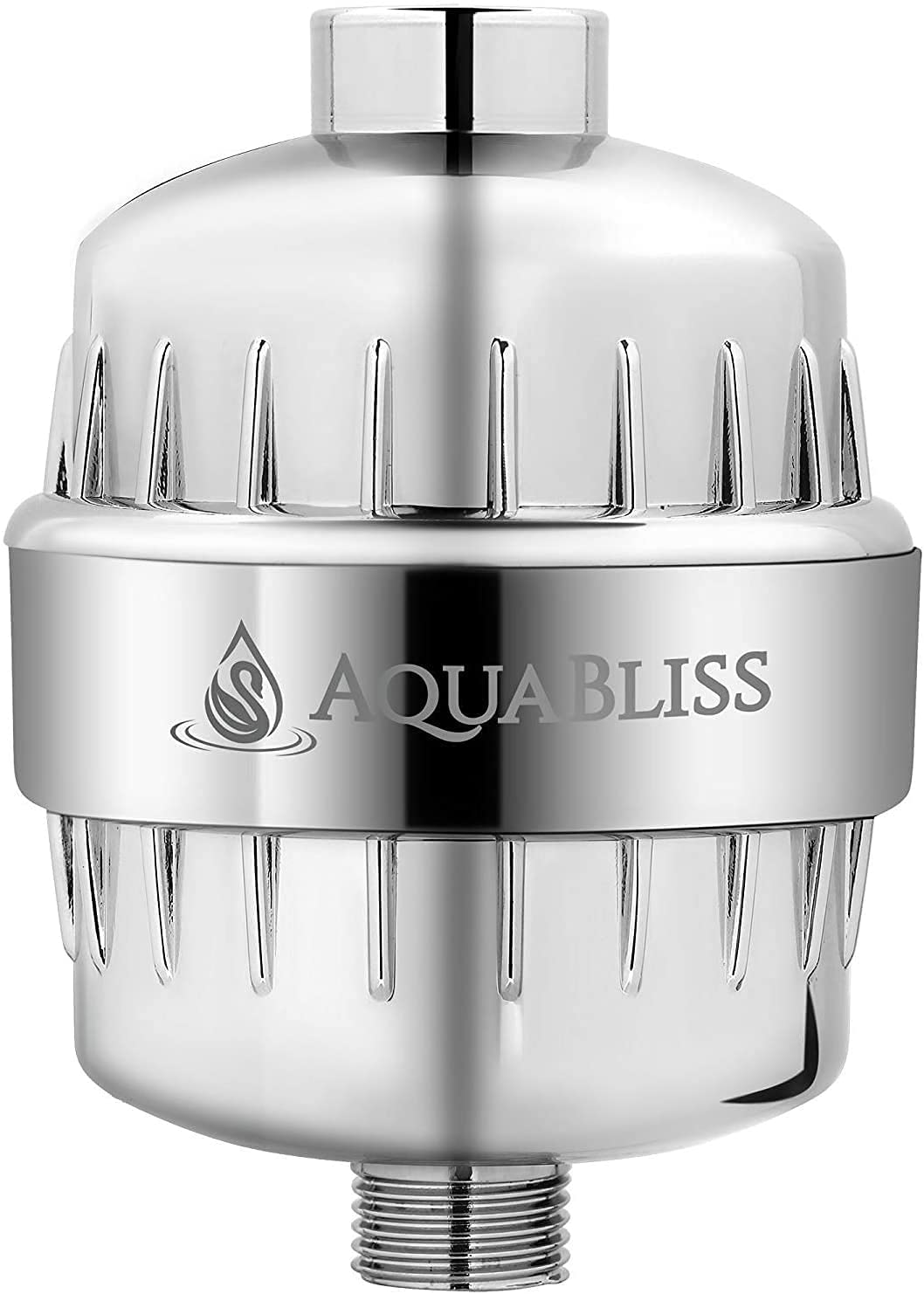
Should you already have a showerhead that you love, pair it with this add-on filter from AquaBliss. Just unscrew your showerhead, screw this filter to the pipe that comes out of the wall, and then attach the head onto the other end of the filter. You’ll notice an immediate difference in your hair and skin after just one use. The filter ($15) should be replaced every six months.
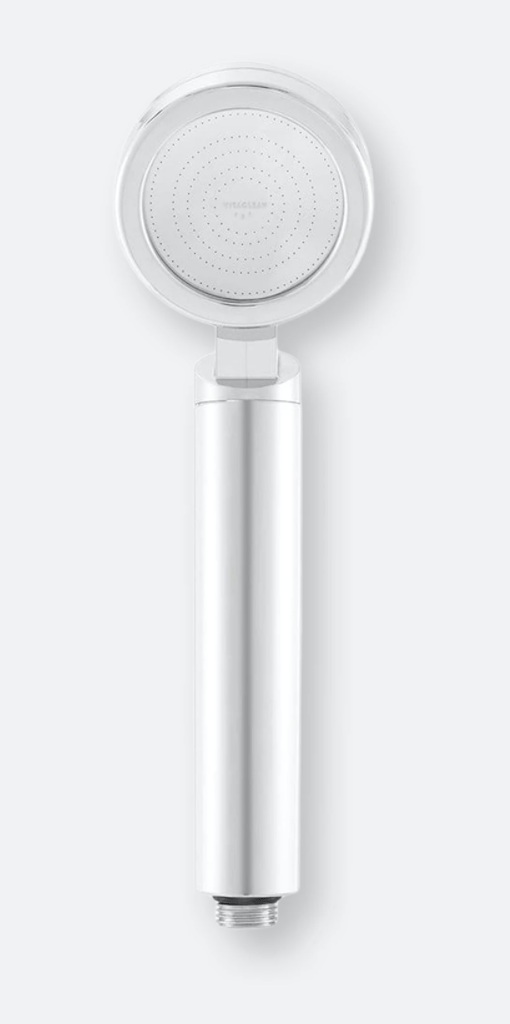
Lindsay Victoria, stylist at Spoke&Weal Salon in Los Angeles, recommends vitamin C showerheads to all of her clients because she says it’s basically the shower equivalent of a Brita filter. But she especially says it’s a good investment for anyone with lighter hair. “The vitamin C helps eliminate any of the minerals, which can turn blonde pretty yellow or coppery,” she explains.
This handheld starter kit includes a showerhead, microfiber filter cloth, filtering ceramic balls, and a citrus-scented vitamin C shot that’ll neutralizes chlorine and remove trihalomethane and other contaminant residues. You should replace the microfiber cloth ($18 for three) and vitamin C shot ($13) once a month. The vitamin C shots are available in unscented, rose, lavender, citrus, jasmine, lemon-mango, or coconut-vanilla. The antibacterial ceramic balls ($7) that act as a filter should be replaced every three months.
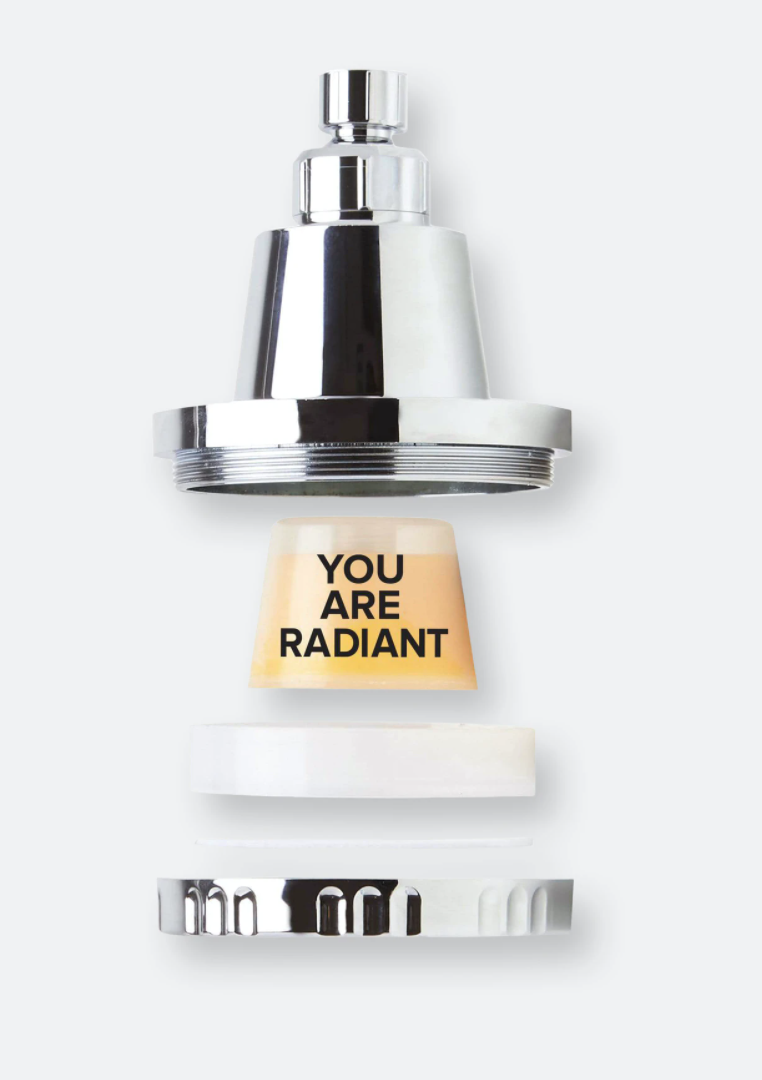
If you prefer a wall mount shower head to a handheld, Vitaclean also offers an option. This starter kit includes the showerhead, microfiber cloth, ceramic balls, and a citrus-scented vitamin C shot. You should replace the microfiber cloth ($18 for three), ceramic balls ($8), and vitamin C shots ($19) every three months. The vitamin C shots are available in unscented, rose, lavender, citrus, jasmine, lemon-mango, or coconut-vanilla.
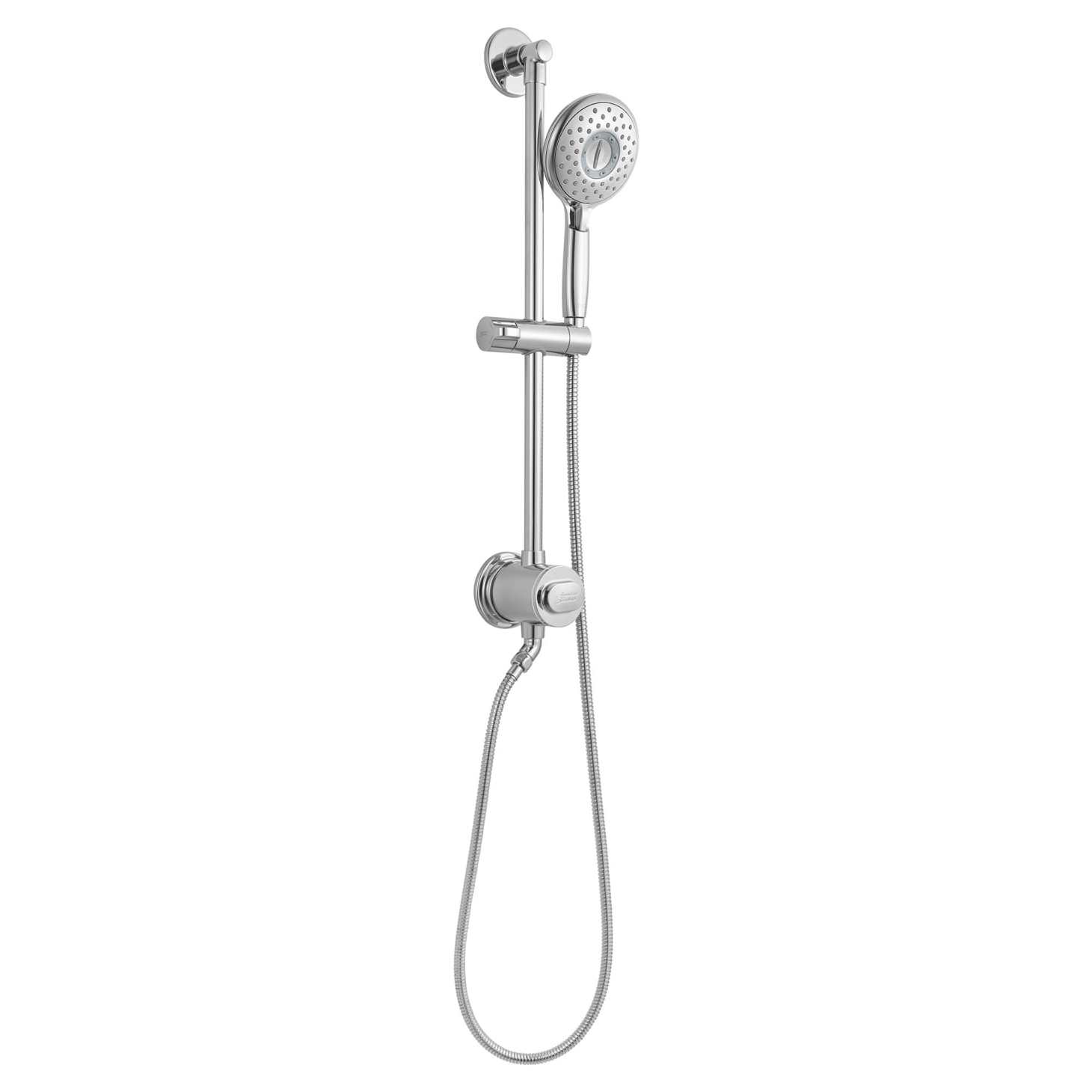
If you look for versatility in a showerhead, consider this rail system. The removable showerhead sits on a base that seamlessly slides up and down a fixed pole, allowing you to change the height of your shower head with ease (great for households with people of varying heights.) Plus, you can adjust the angle of the water. The head has four stream options, and the water runs through a carbon filter ($26) that removes up to 50 percent of chlorine. (The filter should be changed monthly.)
Removing hard water buildup from skin
"Products that provide a mild exfoliation will help to remove the residue of minerals that dull and can irritate our skin," says Dr. Ciraldo. "So you can use a mild exfoliant or a clay mask several times a week to accomplish this."
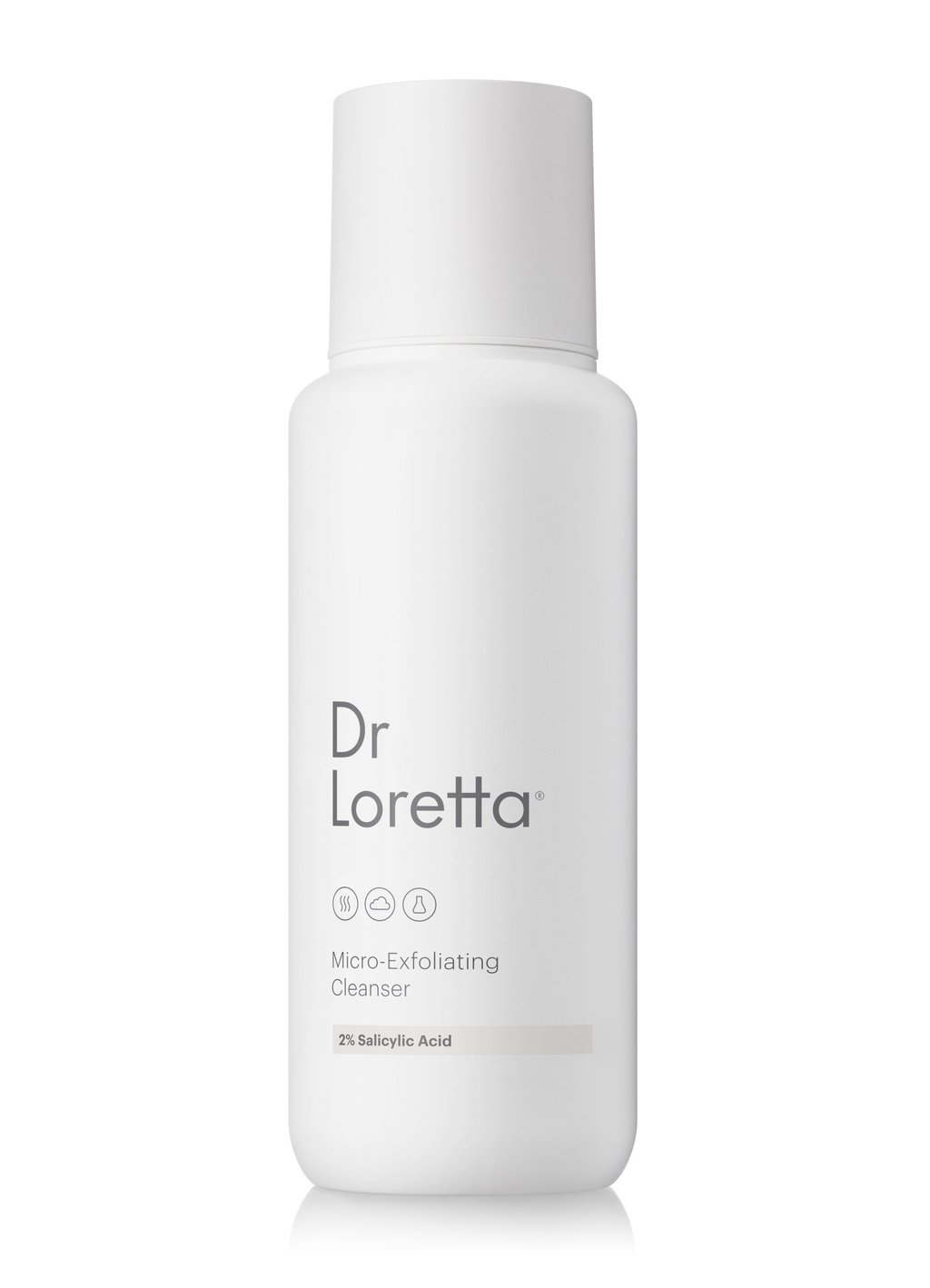
Dr. Ciraldo developed her own exfoliating cleanser using two-percent salicylic acid to gently remove dead skin cells, leading to brighter and clearer skin.
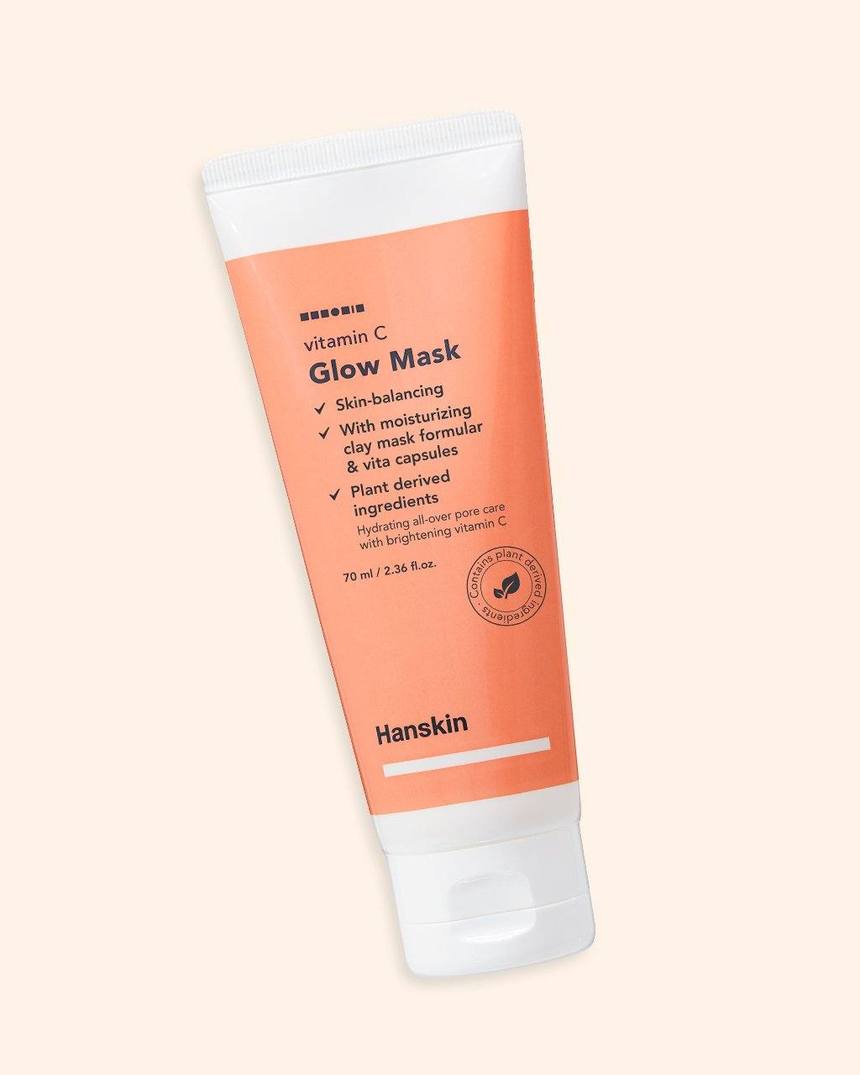
This Hanskin glow mask uses vitamin C (to protect skin against environmental pollutants) and kaolin and bentonite clays to minimize the look of pores and absorb excess oil. It also includes lightweight hydrators like sodium hyaluronate (a sister ingredient of water-loving hyaluronic acid) to prevent dryness and keep skin soft.
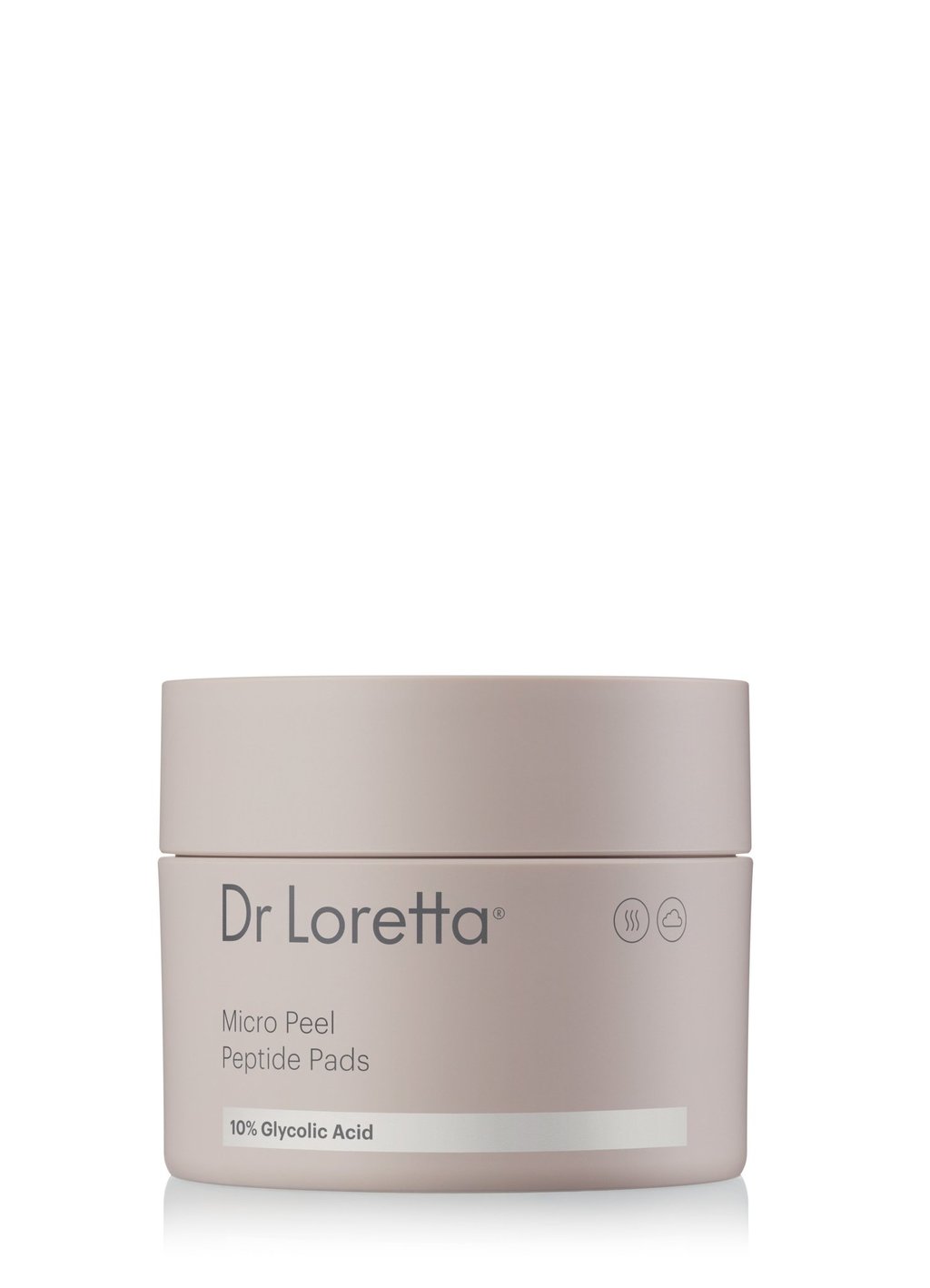
Lightly textured, these pads feature 10-percent glycolic acid at pH 3.5 to removed dead skin cells from the surface of the skin and from within pores. It also includes marine peptides to moisturize and support collagen, plus kola, matte, and guarana extracts provide proven skin-calming benefits.
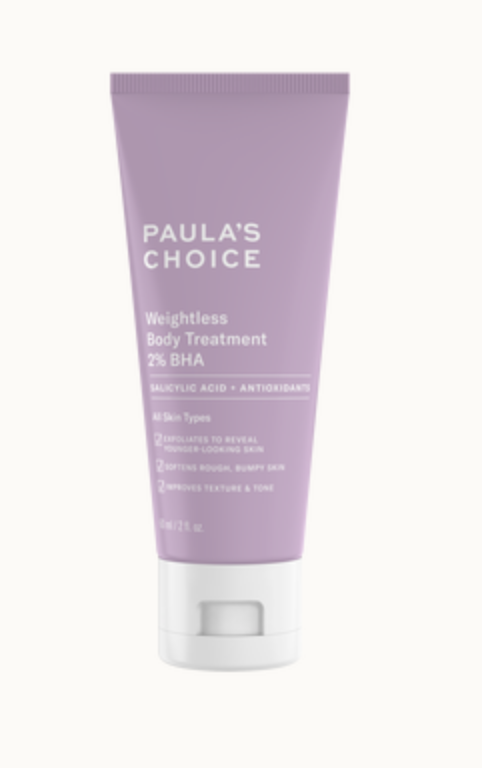
This leave-on body exfoliant from Paula’s Choice contains two-percent beta hydroxy acids (BHA) to manage rough, dry skin.
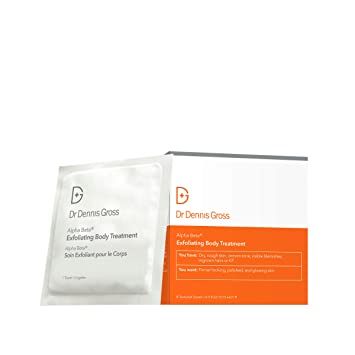
These exfoliating body pads include glycolic acid to reduce visible signs of aging, lactic acid to support natural cells, and salicylic acid to reduce the appearance of pore blockage and supports natural collagen production.
Removing hard water buildup from hair
When seeking to help with hard water residue on your strands and scalp, Ford says to find products that help protect your hair from environmental pollution and clarify.
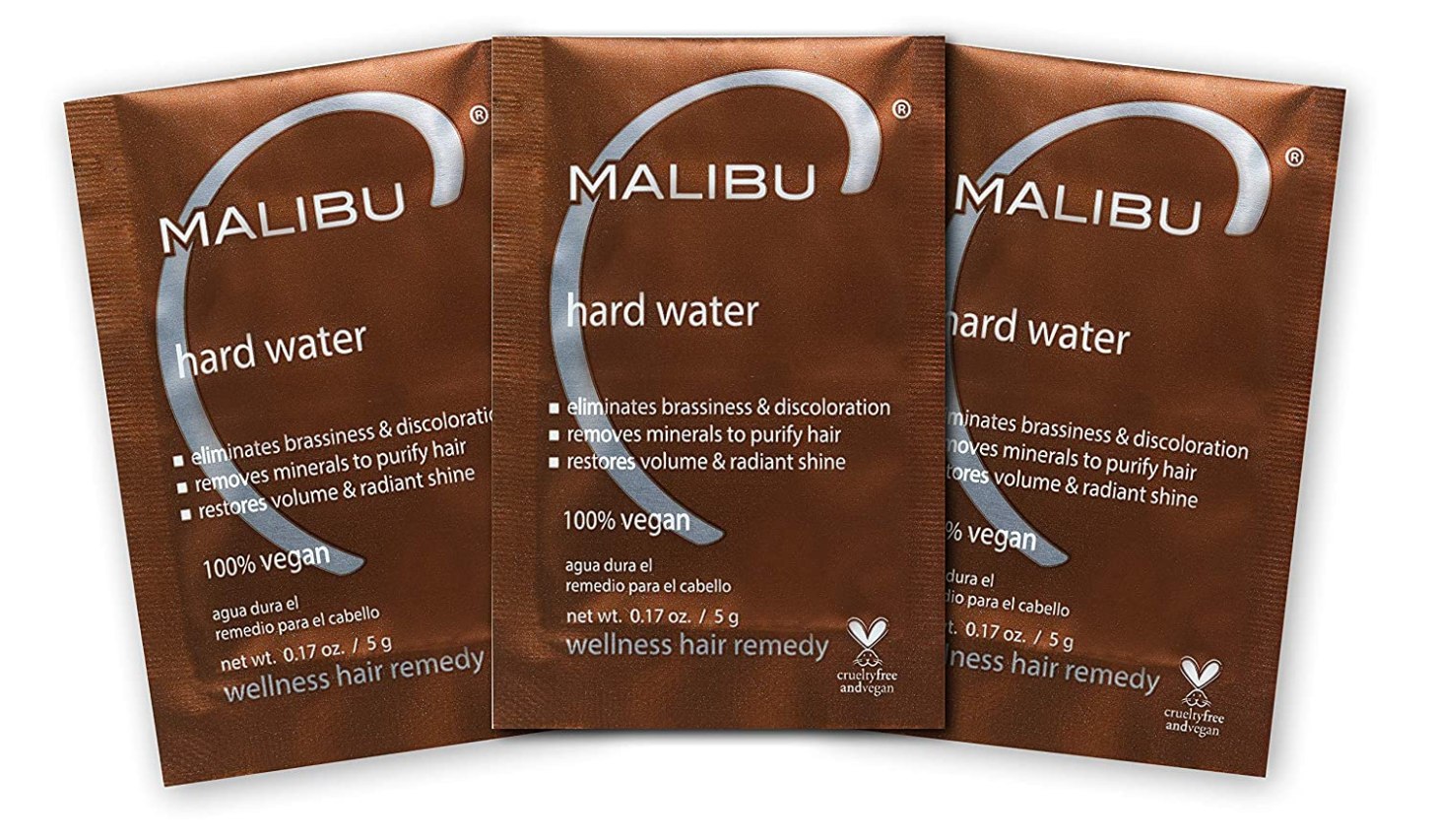
Victoria is a huge fan of the Malibu C Hard Water Wellness Hair Remedy. It uses vitamin C to remove hard water residue and leave your hair silky smooth. “You just wet your hair, sprinkle the powder on it, and massage the hair back and forth,” she says. You may notice the metallic smell of coins—Victoria says that’s the the minerals leaving your hair.
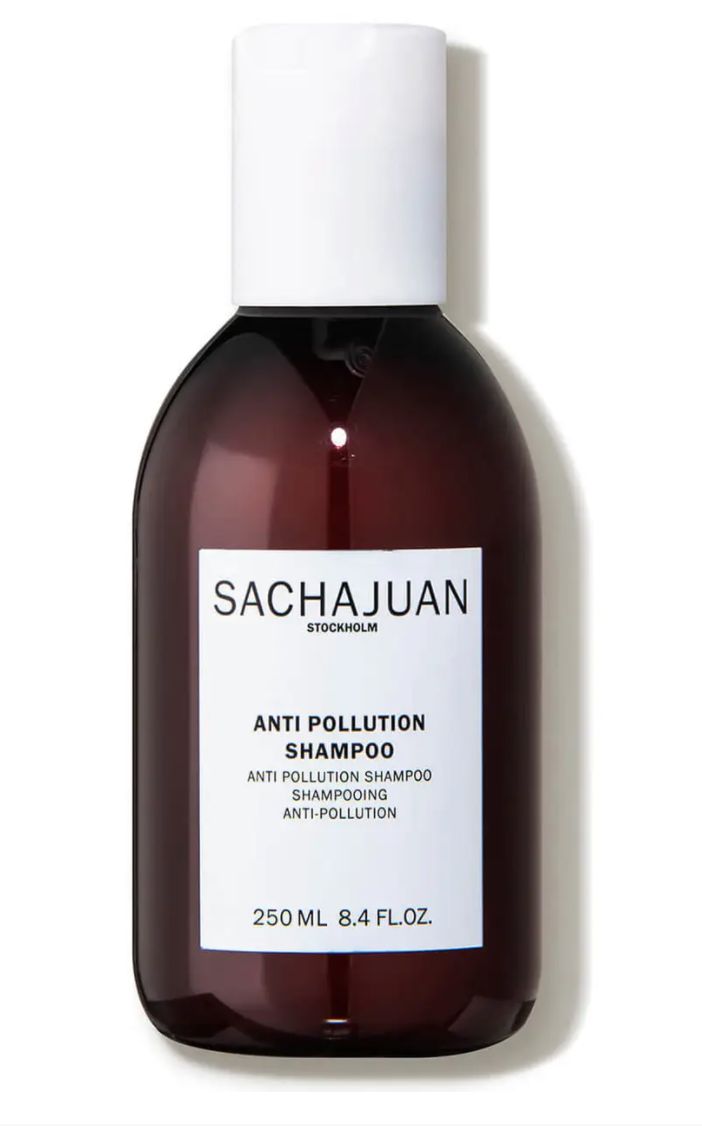
Ford says Sachajuan Anti Pollution Shampoo is great for dealing with hard water. When paired with the Anti Pollution Conditioner ($38), the two “actively work to protect the hair and scalp from exposure to environmental pollution like never before,” says Ford. The system shields against pollution exposure by creating a barrier against the accumulation of pollution particles on the scalp; providing anti-oxidant chelation which bonds the metal and mineral found in hard water to compounds in the shampoo, reducing buildup on the hair; and creating a smoothing effect on the surface of the hair to prevent pollutants and odors from adhering.
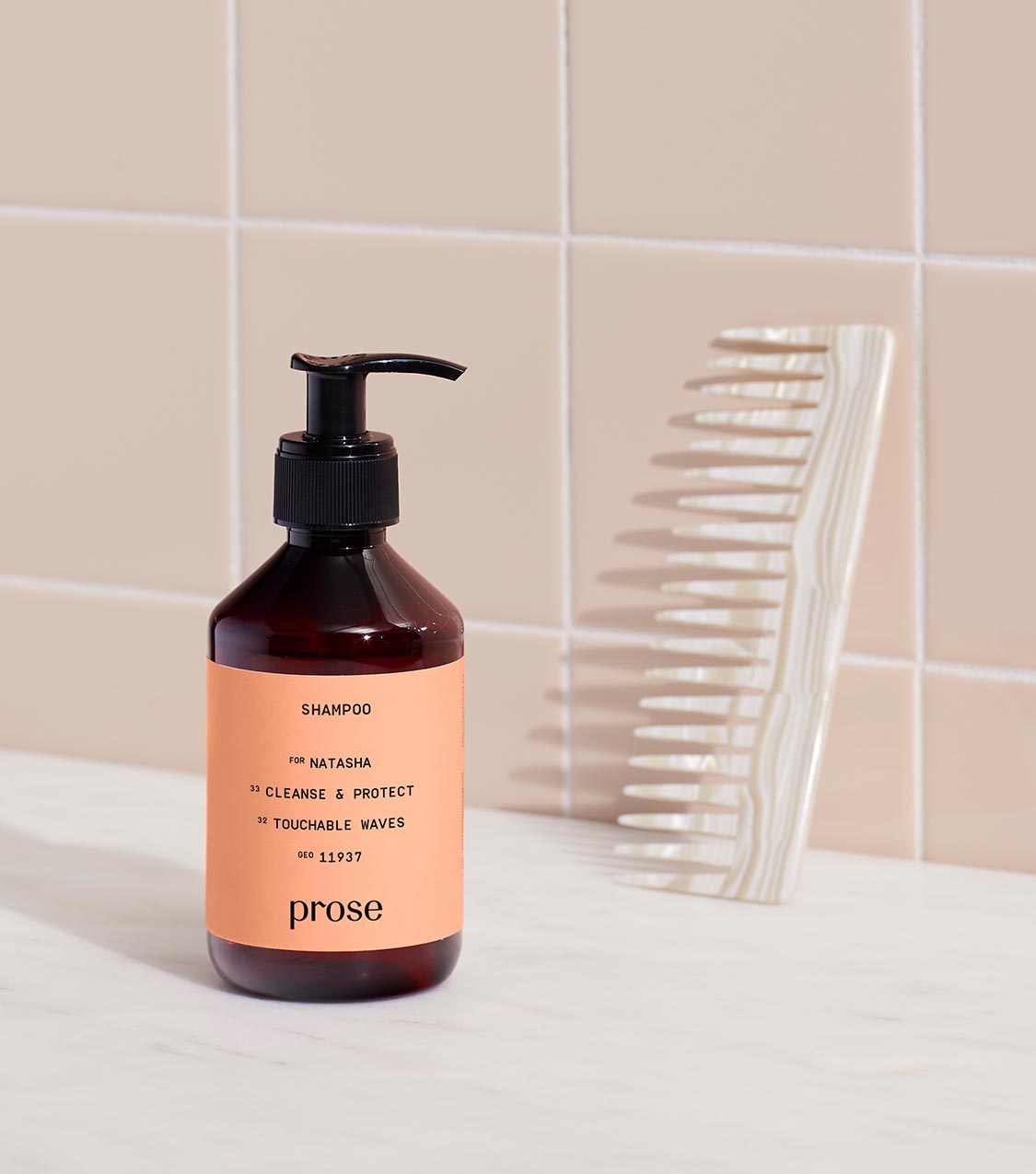
When you take Prose’s hair quiz to create your custom product lineup, you’re asked your zip code. This is so Prose can account for hair-damaging geo-aggressors, like hard water, to create a formula that will suit your strands the best.
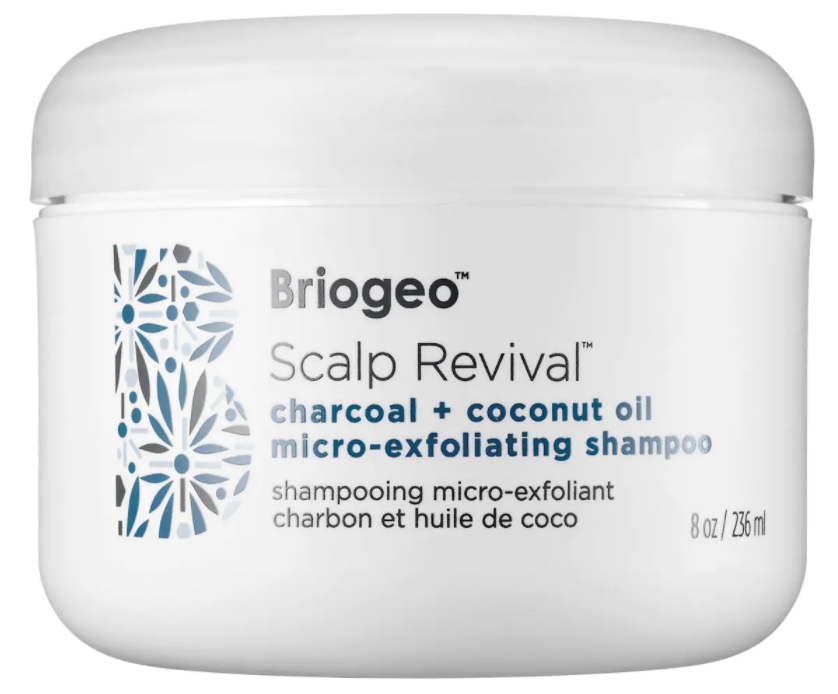
This shampoo uses Binchotan charcoal to draw impurities from the scalp and hair, vegetable-derived micro-exfoliators to remove dead skin cells and product buildup from the scalp, coconut oil to provide deep hydration and moisture to the scalp, and panthenol to strengthen the hair roots and shaft.
Oh hi! You look like someone who loves free workouts, discounts for cutting-edge wellness brands, and exclusive Well+Good content. Sign up for Well+, our online community of wellness insiders, and unlock your rewards instantly.
Loading More Posts...